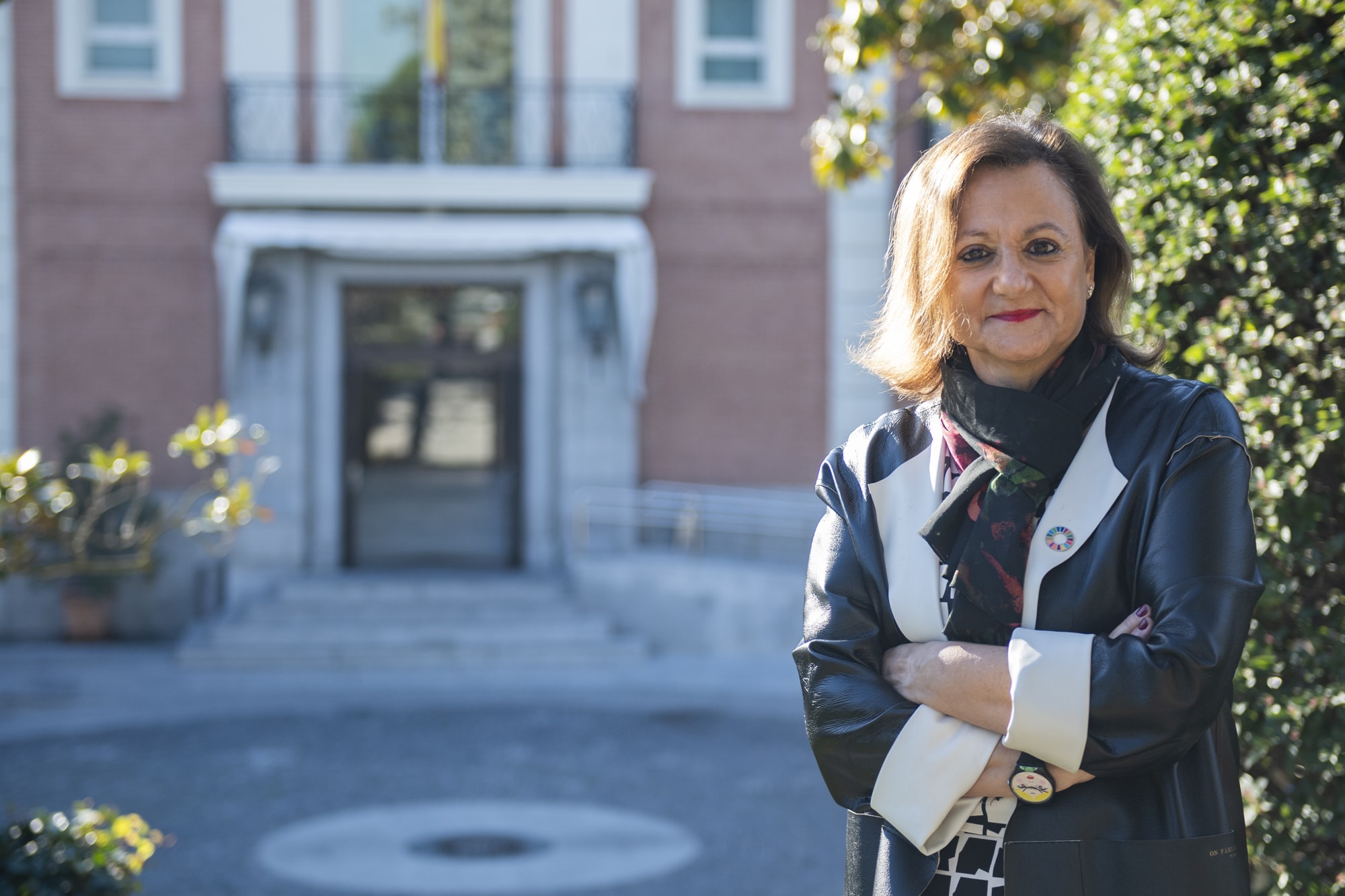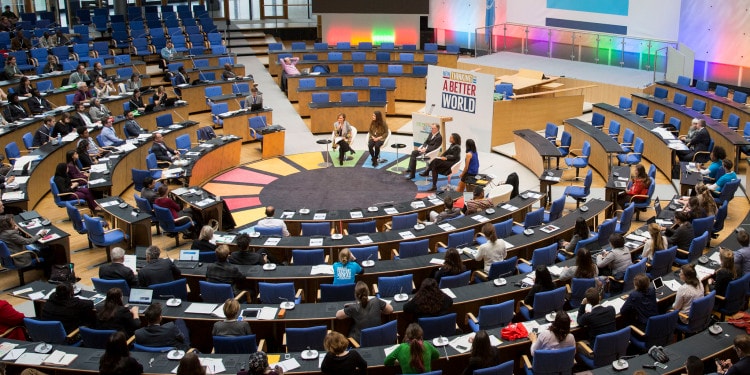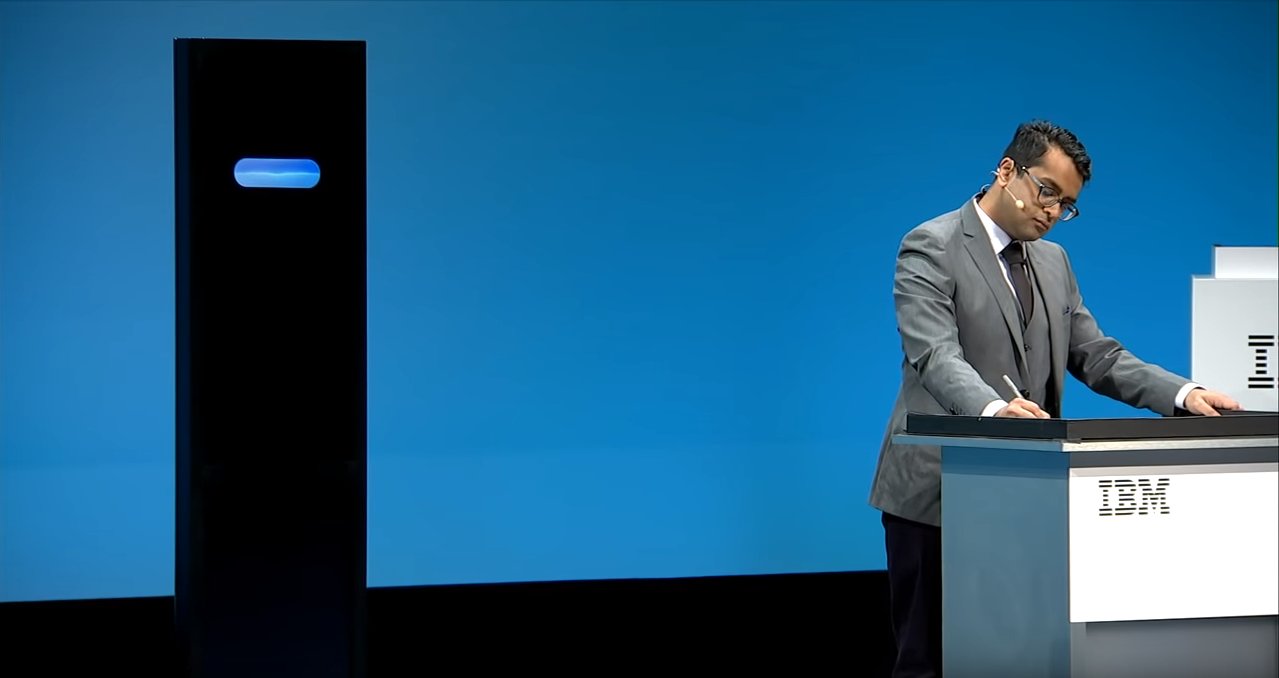In June 2018, the Spanish government set up a special office for the promotion of the Sustainable Development Goals in the country. It created the position of High Commissioner for the 2030 Agenda of Spain as a landmark position. And it appointed Mrs. Cristina Gallach (@cristinagallach) to the job in July 2018, with the task of promoting sustainability in Spain.
Cristina Gallach comes to the job with an outstanding professional background. She has served as Deputy Spokesperson and Communications adviser to the NATO Secretary General, as Under Secretary General for Communications and Public Information and Special Adviser to the United Nations Secretary General and as Equal Opportunities Adviser for the Council of the European Union.
Her position plays a key role towards the achievement of the 2030 Agenda in Spanish society.
Can you tell us why the High Commissioner for The 2030 Agenda was created in Spain, what is the history behind it?
CG: The creation of two High Commissioners, for the 2030 Agenda and for Childhood Poverty, is the proof of our determination to help the weakest in our society and to bring about the change we want. We face this task together, working with all those people who, for a long time, have made social justice and solidarity their way of understanding life. Adding and coordinating all around our territory, pulling together the wills and projects of all social, economic and environmental agents and, above all, connecting people in a clear ideal of shared work.
It is the noblest of tasks so that no one is left behind.
The 2030 Agenda is more than a road map, it is our new global social contract. The Agenda emanates from the United Nations and allows us to reduce inequalities to extinction by tackling problems in a comprehensive and integrated manner.
The Government of Spain is fully committed to this Agenda. It has made it a country project, establishing that the 2030 Agenda is the ideal framework for the deep and essential transformations the country needs, so that future generations will live better. A framework that will lead in future to a more cohesive country, a stronger ethical economy guided by the universal values of social justice, equality and solidarity.
The 2030 Agenda must be one of the fundamental referents of the future of the country and the world that we want for us and for future generations. Generations that have no influence on the system today because they do not vote or consume and yet, they will be the ones who pay the consequences of our actions.
The Agenda calls on Spain to commit to becoming part of a fundamental agreement between political, economic and social forces, with the recognition that a long-term vision is necessary. The SDGs can be assumed as authentic State policy if a parliamentary consensus is reached to accept the 2030 Agenda as an essential reference of our public policies, with the concerted action of all the actors, including business.
According to SDG#17, that aims to strengthen global partnerships to support and achieve the 2030 Agenda, we think that the role of businesses is key in the transformation that the SDGs require in production and consumption models, in the generation of social and environmental value, in the preservation of our planet, in decent employment and in the fight against inequality. A consensus that, at all times, should not ignore, as is logical, the debate and dissent on the most adequate and efficient policies to advance the SDGs.
Can you describe your work as High Commissioner, how do you coordinate Government actions for the implementation of the 2030 Agenda?
CG: Solidarity is the highest expression of our humanity. Solidarity is to understand that together we build peaceful and just societies. Solidarity accompanies those people who, at some point, will need our support, drive and understanding. We cannot leave anyone behind. It is our will to work, to transform the world in which we live by breaking with the causes that produce inequality and poverty in all its dimensions. We strive for economic decisions that will benefit all people, generating prosperity for the whole population, building inclusive societies.
At the national level, we must align all policies, achieving coherence that goes along this path. My task is to contribute to achieve coherence with the work done by the various ministries that participate in the Agenda, ensuring that decisions are in line with the SDGs.
The 2030 Agenda constitutes a new global social contract, and Spain, as a signatory country, has acquired a political commitment to fulfill the 2030 Agenda and the SDGs, not only globally but also at the national level.
As a new global social contract, it binds all social actors and all public administrations. To ensure the contract is achieved, the High Commissioner works through the High Level Group that includes representatives of all Public Administrations, and whose main objective is to ensure the coordination, coherence and monitoring of the implementation of the 2030 Agenda in our country.
To change the course of things, we have to count on the experience, knowledge and participation of the whole society. Therefore, and to guarantee that this knowledge is not wasted, we are promoting the creation of a Sustainable Development Council, made up of multiple actors (NGOs, universities, civil society, companies).
The purpose of the Sustainable Development Council is to represent all the agents of our country. It will be an open, participatory and transparent body that promotes the participation of all parties involved, so that they can share their vision and thus propose solutions to the challenges of the 2030 Agenda. It will allow us to work together with those who want to help solve the challenges that are ahead.

How do you plan to get the private sector involved to improve the implementation of the 2030 Agenda? What main areas do you believe they should be focusing on in order achieve sustainability?
CG: The private sector, like any other actor, will participate by contributing their vision and experience in all aspects related to the 17 Sustainable Development Goals. It will be very important to have the representation of the economic sectors that contribute the most to the Gross Domestic Product of our country, as well as to the entrepreneurs who are now betting on developing the solutions that the world needs.
Businesses play an indispensable role, as engines of development and as economic, social and environmental transforming levers. They are leading the change and jointly designing the new economic paradigm that we need.
There are numerous opportunities around the new 2030 Agenda, but the private sector also needs to undertake more responsibilities. It is necessary for companies to apply the 2030 Agenda to their business strategy, so that the changes are structural and not superficial.
In Spain, many businesses are leading the change and jointly designing the new economic paradigm that we need. These companies are aware that the world must be sustainable, or will not be compatible with the development of business opportunities.
The preliminary results of the 2018 Global Sustainability Index Institute report, which analyses the 400 largest companies in the world with a combined market capitalization of more than 25 trillion dollars, indicate that the number of statements on the Sustainable Development Goals (ODS) has doubled. As indicated, the companies are more explicit with respect to their contribution to the achievement of the SDGs in their annual reports because these mentions seem to generate positive returns to companies, while responding to the demands of their stakeholders.
Do you have any advice or tips for our readers on how the SDGs can be implemented in our daily life?
CG: We have to be more conscious and responsible. We are the last generation that can put an end to the disastrous consequences on the planet and the first generation that can see the eradication of hunger in the world.
One very practical example can be found on the UN’s website, citizens can find the “Lazy Person’s Guide to Saving the World”, that shows through four different levels of “laziness “what people can do for the 2030 Agenda. While first level are actions that everybody can do from its couch, fourth level are actions that people can do while at work.
Are you concerned about the climate-denying and environmentally detrimental policy pursued by certain key global leaders like Donald Trump in the US or Bolsonaro in Brazil and other global facts, for example the Trump Administration’s withdrawal from the UN Human Rights Council? Is there anything you or Spain can do about it?
CG: The main challenges are global and require global and local actions. I think that in our time of pressure from identity politics, communication acquires an absolutely disproportionate role. Difficulties are on the increase. Individuals that have millions of followers on social networks can provide very few solutions. While, for example, ideas on solutions posed by scientists or specific groups have less visibility or even no visibility at all.
Yet the world is much better than it has been, despite the complexity of the processes that are taking place. We are going in the right direction.
It is true that the United States has stopped funding voluntary contributions to the UN, and has withdrawn from the Paris climate agreement, but, on the other hand, American cities, starting with New York, have put in place measures to combat climate change. As a result, it may be that the United States will achieve results in compliance with the Paris Agreement well above expectations, thanks to that local mobilization.
The 2030 Agenda is a global and strategic plan to face the social, economic and environmental challenges that globalization has brought us. Globalization has contributed with very positive things, but at the same time it has caused a deterioration of the planet, economic imbalances and a lot of social exclusion. The Agenda is a universal plan to face these challenges.
We have to face the causes that create poverty, inequality, climate change, unworthy work and lack of opportunities. We have to work at the root of these problems. Only from a global vision we will provide people with viable options for their future.
Editors Note: The opinions expressed here by Impakter.com columnists are their own, not those of Impakter.com
Featured Photo Credit: photothek/Inga Kjer Flickr Global Festival of Ideas for Sustainable Development, 2 March 2017, held in Bonn, with participation of Cristina Gallach.








